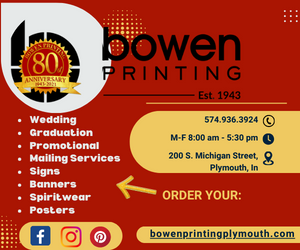 05/27/11 Wednesday, Congressman Joe Donnelly offered an amendment to the National Defense Authorization Act for Fiscal Year 2012, H.R. 1540, legislation authorizing Pentagon programs for the coming year and setting forth our nation’s defense policies and priorities. Donnelly’s amendment would direct the Department of Defense (DOD) to devise a comprehensive strategy setting out standards for oversight plans governing all private security contracts funded by the DOD and designate a single official in the country of operations with the responsibility of certifying that each private security contract has an effective oversight plan and that the contractor’s employees are properly licensed and permitted to do their work.
05/27/11 Wednesday, Congressman Joe Donnelly offered an amendment to the National Defense Authorization Act for Fiscal Year 2012, H.R. 1540, legislation authorizing Pentagon programs for the coming year and setting forth our nation’s defense policies and priorities. Donnelly’s amendment would direct the Department of Defense (DOD) to devise a comprehensive strategy setting out standards for oversight plans governing all private security contracts funded by the DOD and designate a single official in the country of operations with the responsibility of certifying that each private security contract has an effective oversight plan and that the contractor’s employees are properly licensed and permitted to do their work.
“A brave Marine from my district, Lance Corporal Joshua Birchfield, lost his life when an Afghan private security contractor—unlicensed, poorly trained, and an alleged regular drug user—shot and killed him while he was on patrol with his unit not far from his base,” said Donnelly. “I believe we owe it to our men and women serving in harm’s way to ensure that those whom the U.S. Government pays to provide security are subject to more rigorous oversight to ensure reliability, effectiveness, and safety.”
According to the Congressional Research Service, the DOD currently relies on 19,000 private security contractors in Afghanistan, a force equal to almost 20% of all U.S. military personnel in that country. The ratio of armed contractors to U.S. forces is higher in Afghanistan than it ever was in Iraq, and 95% of the security contractors in Afghanistan are Afghans—a significantly higher reliance on local security contractors than Iraq.
In 2008, Congress passed legislation requiring improved oversight of private security contractors from the DOD. While the DOD has implemented some changes, the Government Accountability Office currently considers the specific recommendations on regulating security contractors, including the screening, training, equipping and oversight of contractors, either only partially implemented or not implemented at all.
“If we are going to continue to rely on local security contractors in Afghanistan, we must make oversight a top priority,” Donnelly continued. “I cannot say for certain that had there been better oversight by our government this tragedy would have been avoided, but we owe it to our servicemen and women in harm’s way to get this right. I believe DOD must significantly improve the oversight of private security contractors.”
To address this issue, Donnelly’s amendment to H.R. 1540 would do two things:
- First, his amendment directs the Secretary of Defense to establish a Quality Assurance Surveillance Plan that would set uniform standards for contract oversight plans for all private security contracts funded by the Department of Defense in Afghanistan and in any future country of operations. Beyond just ensuring that paperwork is in order, all security contracts would require plans clearly laying out an oversight strategy and designating sufficient personnel to exercise the oversight necessary to ensure contract performance and reliability.
- Second, his amendment directs the Secretary of Defense to designate a single official in the country of operations with the responsibility of reviewing private security contracts to ensure compliance with the Quality Assurance Surveillance Plan. Further, this official must certify that he or she has reviewed the oversight plan for a security contract, that the oversight plan is appropriate for that contract, that there is an appropriate number of trained personnel available to oversee that contract, and confirm that any and all licenses and permits required of a security contractor and its employees have been reviewed and verified as current and authentic.
To read Donnelly’s statement submitted during debate of the amendment, click here. The Congressional Budget Office reviewed Donnelly’s amendment and concluded that it does not increase direct spending and does not add to the deficit. Donnelly’s amendment passed by voice vote as a part of a package of amendments and will be included in the final version of the National Defense Authorization Act for Fiscal Year 2012, which was voted on Thursday.














